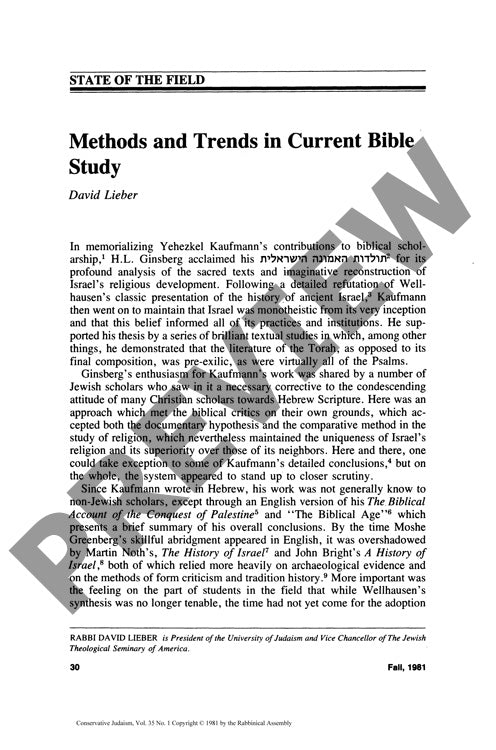Methods and Trends in Current Bible Stud
Couldn't load pickup availability
Biblical scholarship has undergone profound methodological transformations over the past century, driven by archaeological discoveries, evolving analytical frameworks, and shifting theological perspectives. Five foundational exegetical approaches now shape contemporary biblical criticism: textual, source, form, tradition, and redaction criticism. The Qumran discoveries and advances in Northwest Semitic philology have revolutionized textual studies, while archaeological findings reveal increasingly complex relationships with biblical narratives. A notable shift from archaeological optimism to methodological caution characterizes current historical studies, as scholars prioritize nuanced tradition analysis over sweeping theoretical constructs. The integration of sociological and anthropological methods, particularly through cult-historical analysis, has illuminated new dimensions of Israel's religious evolution. Biblical theology has progressed from Eichrodt's systematic covenant-centered framework to von Rad's tradition-historical approach examining Israel's confessional literature. While interdisciplinary methods have dramatically enhanced critical methodology, the field continues to grapple with fundamental tensions between descriptive historical analysis and normative theological interpretation. These unresolved questions about the relationship between historical reconstruction and theological meaning underscore the need for ongoing methodological refinement and scholarly dialogue.

More Information
-
Physical Description
-
Publication Information
Published 1981
ISBN
-
Publication Credits
David Lieber

